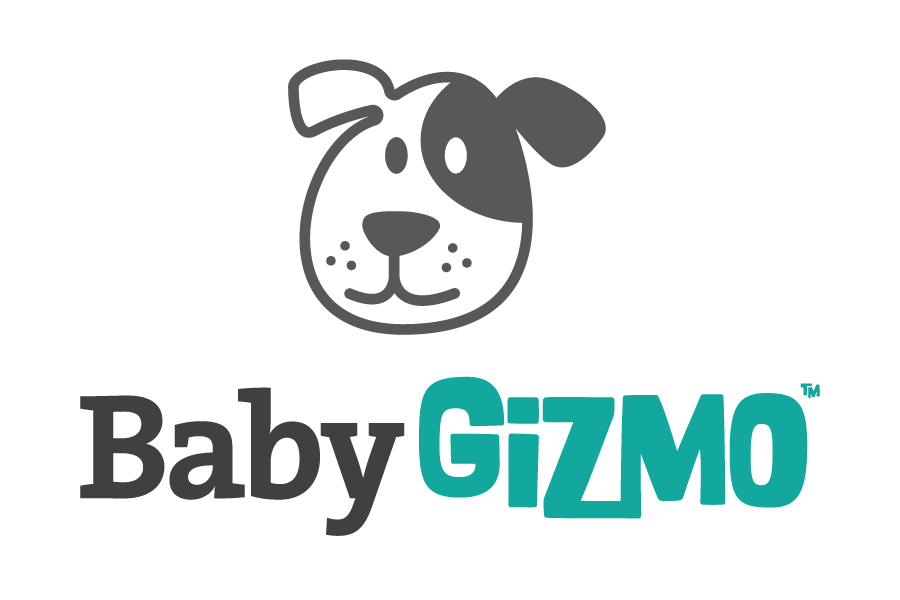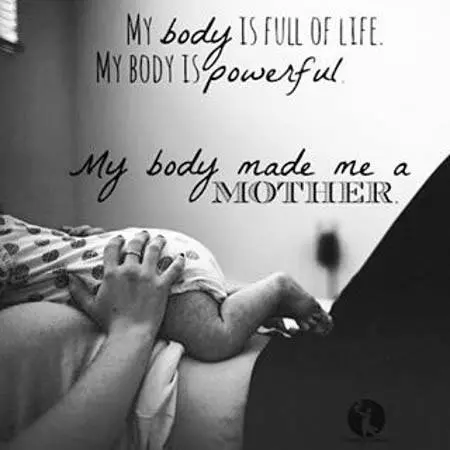I hardly recognize my physical self anymore. I look down at my body and see the marks left by each of my two babies, knowing more will come. I see my uneven breasts because nursing has become a battle to maintain my milk supply. I feel my shoulders slump from the weight of our family troubles, and from carrying heavy children when they get sad. I wear the same 4 outfits because nothing else fits and I pray people who see me semi-consistently won’t notice. And the chemicals in my brain have literally become imbalanced, resulting in what we call Postpartum Depression, due to the many triggers a new mother faces. Everywhere I go, I see influences of what my body should look like, how I should feel about my new life, and I can’t help but compare it to my reality. Every day that my husband sees me changing, sees me after a shower, sees me as we finally get a moment to be intimate, I think about my postpartum body and the ensuing insecurities I now carry.
This is the attitude most mothers have towards their postpartum body. Having a baby will quickly and drastically create a permanent change that is, understandably, hard to adjust to. Of course we will feel discouraged if we only look at our undesirable changes on a skin-deep level. But what does the postpartum body really mean when we analyze each mark?
Those tiger-stripe stretch marks mean I’ve been able to conceive and carry a piece of my husband and myself. I was able to safely house two infants I hadn’t met yet but somehow already loved fiercely. These ugly marks are the outward manifestation of the miracle that happened within. I may have these stripes for the rest of my life and one day, they may comfort me, instead of embarrass me. When my babies are no longer small enough to be rocked in my arms, when they’ve moved away and started their own families, these marks will remind me of them. Because of the faded stripes I carry, I carry a piece of my children with me always.
My uneven nursing breasts may look unsettling and feel uncomfortable, but there’s something more important at stake than my own vain appearances. They have transformed from useless bags hanging off my chest to the vessels that feed and sustain life! And when my breastfeeding days are over and they shrink back to useless (and now deflated) bags hanging off my chest, instead of mourning their lost perkiness, I’ll feel pride and say, “Job well done, girls.”
My slumped shoulders may be the source of the tension headaches I feel on a daily basis, but they have been strong, despite life’s worries. They have born weights I never thought I could lift. They remind me of the hardships my husband and I have faced as a team and they make me realize I can take on more. These shoulders are the ones my oldest will cry on because she knows it’s a safe place to rest. These shoulders carry my children when they aren’t able to carry themselves. And one day, I’ll lift those hard-worked shoulders back into proper posture and realize this is one postpartum ailment that doesn’t need to be permanent.
Those same four outfits I wear because nothing else fits attractively may get old after so many uses, but they are the outfits I wore when I bonded with my children. The black pants might be faded, but they will always remind me of the hundreds of books I read with my toddler in my lap. The blue, comfy shirt has held up through major spit ups and late night colic screams. The one dress I have for church each Sunday will always remind me of the quiet nursing sessions I have shared with my baby while being spiritually uplifted. And though I wear these outfits out of necessity because of my postpartum body, they are the clothes my children recognize, making finding their mother easier. It’s not so hard to put on the same outfit every day when my toddler still tells me, “Mommy, you’re pretty.” She doesn’t care what I wear and what it hides—she still sees my beauty.
My struggles with Postpartum Depression and Anxiety may be a result of imbalanced chemicals and difficult circumstances, but I am blessed to live in a day where modern medicine and counseling are available to heal me. It is not a disease I would wish on my worst enemy but it has taught me to be strong. I have learned what sacrifice and hard work can accomplish and I’ll forever be grateful my postpartum body went through that change. Because of it, I came out more forgiving and empathetic to others.
Having a “postpartum body” might mean changes you are struggling to accept, but it doesn’t have to require a negative connotation attached to it. What the “postpartum body” really means, what it really shows, is your greatest accomplishment—becoming a mother and living your motherhood as best you can. It’s always difficult to accept change and no one expects you to love your new scars or aches right away, or for always. But when you’re looking in the mirror and feeling down about yourself, try to think of all the ways each “bad” change has influenced something great in your life. Rock that new body and thank it for everything it has done for you and your children. And someday, everyone will understand that the “postpartum body” will be a wonderful sight to behold!

